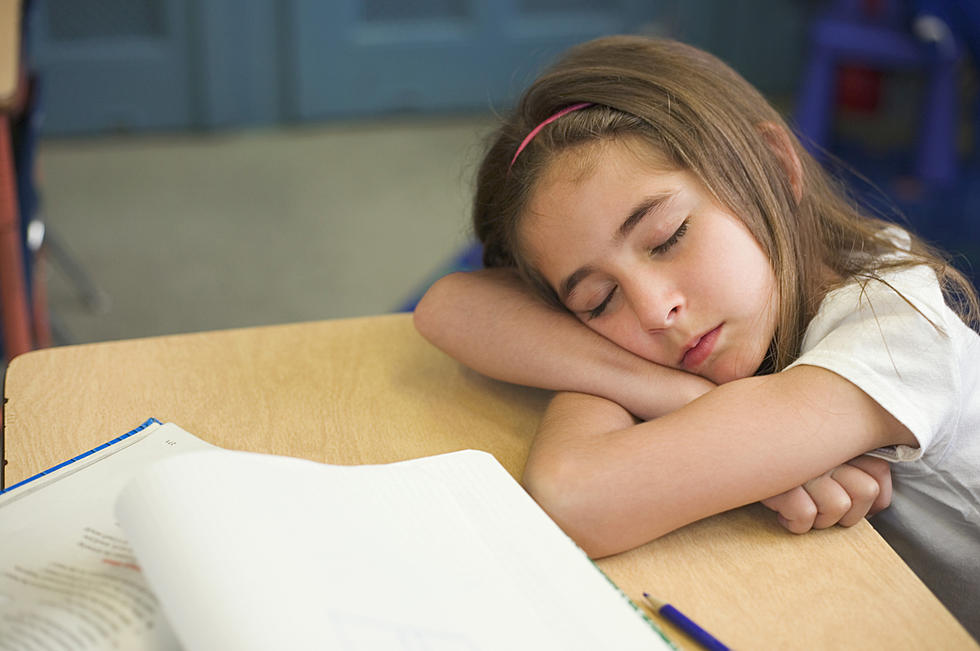
Don’t Snooze on Back To School Sleep Habits
Whether you are the parent of a first-grader or college freshman, you know how important sleep is to your child’s success at school. Quality sleep leads to better focus, memory, and even improved mood. As our kids get back to the classroom, they should be getting the sleep they need to be successful throughout the entire school year.

The amount of sleep needed varies depending on your child’s age, activity levels, and individual needs. The National Sleep Foundation suggests that kids age 6-13 get 9-11 hours of sleep and teens get 8-10 hours.
However, studies show about 60-70 percent of middle and high schoolers don’t sleep enough on school nights. In addition to a structured sleep schedule and bedtime routine, kids need what is known as good sleep hygiene, which is basically habits that affect their sleep. Here are some of the most important sleep habits for your kids (and for you too, by the way).
Bedroom Tips for Quality Sleep
A child’s sleep environment contributes to how well they sleep. Parents can take several steps to ensure their children have quality sleeping environments:
Keep the room dark. Dark or heavy curtains can eliminate outside light.
Make sure the room is cool. An environment that is too warm can keep your child awake.
Eliminate noises and keep the room quiet. Some children may desire a white noise machine or a fan to create a soothing sound so they sleep distraction-free. Be sure to avoid noisy activities (such as vacuuming) in the evening when your children are trying to sleep.
Use the bed only for sleep. Encourage your child to do homework, reading, and other activities in designated locations.
Blue Light, Technology, and Sleep
Multiple studies suggest that children exposed to blue light before bedtime experience poorer quality sleep. It is thought that blue light suppresses melatonin11, the hormone that tells the body it’s time to sleep. Much research still needs to be done, but preliminary results indicate that screen usage delays bedtime and overall sleep time12.
To avoid potential sleeping difficulties, encourage children to avoid the following in the hour before bedtime:
- TVs
- Computers and laptops
- Cell phones
- Handheld video game devices
- Other electronics that emit blue light
Giving up devices before bed might be difficult for some children. Suggest alternative forms of relaxation, such as reading or journaling. Beginning this process before the school year starts can allow your children to adjust to the back-to-school sleep schedule prior to the first day. That way, when the first day of school arrives, your kids can wake up rejuvenated and ready to put their minds to the test.
A sleep schedule helps prevent fatigue, exhaustion, and daytime drowsiness.
Children and adolescents whose parents set a bedtime schedule are more likely to get sufficient sleep. A sleep schedule helps prevent fatigue, exhaustion, and daytime drowsiness.
Remember that adjusting to a new sleep schedule feels challenging to some children. If your child does not fall asleep after twenty minutes, have them come out of their room and do a quiet, sleep-inducing activity free from blue light. When they are sleepy, help them to bed again.
Be patient, and give yourselves time. Older children and adolescents may benefit from discussions about the importance of sleep and good sleep habits.
Exercise Regularly
Exercise promotes sleep and reduces stress. Remember that inactivity during school years increases the risk for obesity in adulthood8. Also note that your child should not exercise too close to bedtime, since this might prevent them from falling asleep.
Avoid Overscheduling
Avoid overscheduling your kid for too many extracurricular activities. While it may be fun, free time and rest time are also important to children’s development.
Limit Napping for Adolescents
Napping in adolescents is linked to shorter and poorer sleep at night9. Naps should not be taken if they interfere with sleep at night. However, if your child needs to nap in order to function well for the rest of the day, try to keep the naps less than 30 minutes long.
Limit Blue Light and Tech
Multiple studies suggest that children exposed to blue light before bedtime experience poorer quality sleep. It is thought that blue light suppresses melatonin, the hormone that tells the body it’s time to sleep.
To avoid potential sleeping difficulties, encourage children to avoid the following in the hour before bedtime TVs, Computers and laptops, Cell phones
Handheld video game devices
Other electronics that emit blue light
Set A Good Bedtime Routine
Winding down at the end of the day can help children sleep well and prepare for school the next day. A good bedtime routine includes relaxing activities such as a warm bath or shower, Cuddling with a parent, Singing lullabies, reading with a parent or individually, journaling or meditating.
More From SoJO 104.9 FM










